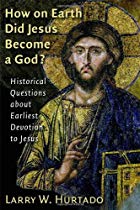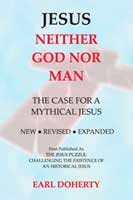This afternoon I was feeling a punch-gut of illness after reading blogs by classical humanist intelligentsia openly referring to “dumbshit masses”, “mob morality”, “village atheists”, “education for character” and the like, and was in dire need of some reassuring contact with the everyday people who make up those supposedly benighted masses. One of the hardest parts of those elitist writings to swallow was a cameo remark of the need to comprehend and embrace the fact of human frailty. Specifically, it was in this area that “new atheists” are said to have failed.
What depressed me so much was reading how such scholars are so free and easy with the way they label others and the pursuits of the less well educated, but so very self-conscious and finicky before suggesting any appellation that might be applied to themselves.
So to cut to the chase here. Sure, I call myself an “atheist”. But that’s in order to communicate the general idea of my position on the idea of god or gods. If pressed, I will not align myself with every nuance that the etymology and derivation of the word may suggest. It is simply a convenient way of letting others know, by means of very broad brush strokes, where I stand on something they are curious to know.
Similarly for the term “humanist”, or specifically “secular humanist”. Or for describing myself as a “naturalist”. Or a “rationalist”. I could go on.
None of this means squat, though, for anyone who is more interested in discussing and sharing the finer details of what we think and feel about issues.
People are not their religion, or philosophy, on life, much less any label that one might tie on them personally or collectively.
I am opposed to much of what strikes me as latent intolerance in the writings of Sam Harris and Christopher Hitchens in their attacks on religion. I think Harris, in particular, is very under-informed about the deeper historical roots of tensions that have expressed themselves through religious ideas.
But labeling such authors as ‘new atheists’ and relegating them all to some back room crate for waste combustibles, and wishing to replace them with a more sophisticated open acceptance of religious values, is misguided.
Sam Harris and Chris Hitchens, despite the many areas where I find myself at odds with them, do at the same time have some very valid reasons for fearing the dark potential of any irrational belief system. It is healthy to bring these fears out into the open where they can be publicly addressed.
One can be opposed to religion without being rabid about it, and not all people labeled ‘new atheists’ are fanatical as they have been accused. I can be opposed to smoking without making myself a total jerk with all of my smoker friends. I can even love and enjoy the company of my smoker friends.
Last week saw Vesak celebrations among Buddhist Chinese communities. One can’t escape the religiosity of the occasion. But there’s also something peaceful and tolerant about it all, a certain happiness and goodness comes through many people gathering at shrines and statues and to hear speakers etc. There was a poster in English explaining a particular gathering, and the focus was on removing hatred from one’s thoughts. The non-judgmental nature of the whole occasion was demonstrated by prostitutes taking time out to offer their prayers alongside everyone else.
How can I oppose a religion like that? Well, it’s easy to accept it because I’m a newcomer and know very little about it. I only see the goodness of it as an outsider.
But I’ve also seen the goodness of some very active Christians working to better the lot of the down and outs in very practical ways.
It’s the prescriptive religions — and philosophies and ‘isms’ — that are easy to oppose. Those that prescribe what people should do, how they should live, according to principles supposedly external to and above oneself.
People don’t need to be “taught” morals as if there are certain good ways of behaviour they would never otherwise think of applying in their own lives. We are, by nature, moral animals. And being social animals, our moral tendencies work in favour of the well-being of all in our various circles of self-identity. We don’t need to learn to build “character”, as some religions insist. We only need to accept ourselves and others, and the rest follows. Generally speaking, that is. Religion does have a tendency to toss up a lot of extraneous thoughts that get in the way of this simplicity.
There are the exceptions always to the generalities. Knowing how to handle and respond to these, especially when they are doing outright harm to others. And very often the harm can be related to a tolerance and support for irrational beliefs, including religious beliefs. Now that is where I think “character” comes into the picture. But it’s not something that one has to be a saint to acquire. It is simply a matter of being honest and true to oneself and the greater good. And if one finds that some atavistic religious or other irrational belief is getting in the way of that, then one has a responsibility to speak out against that. Like a cancer warning on a packet of cigarettes. Sometimes more than speaking out is necessary.
This is all truism and I’ve only spilled out the obvious.
All I mean to say is that one can be a “humane humanist”, one who acknowledges and respects the frailty of being human, and who embraces the fullness of human experience, including the healthy irrational, and still rightly oppose and believe in working towards ending, if possible, the role of god-centred religion in human existence.
Like this:
Like Loading...




 Note the outrageous $6 price tag for a cheap lotus flower candle and fantasize Jesus descending to scare the daylights out of that greedy, money-hungry elderly lady lotus-candle-flower seller. Of course, it helps if you re-image the scene to anti-semitic stereotypes.
Note the outrageous $6 price tag for a cheap lotus flower candle and fantasize Jesus descending to scare the daylights out of that greedy, money-hungry elderly lady lotus-candle-flower seller. Of course, it helps if you re-image the scene to anti-semitic stereotypes.

 One of the books I read while in the process of questioning my faith some years ago was
One of the books I read while in the process of questioning my faith some years ago was 


